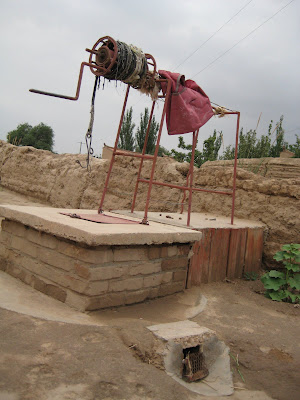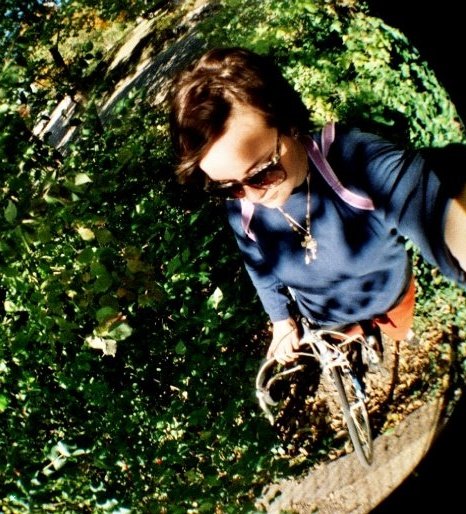Enjoy:

Buddhist site while leaving the Tuzu village.

A truck full of lil goats in Gangcha county.

Beautiful scenic landscapes along the Yellow River.

Only a China sky can be this beautiful in the west.

Standard sort of irrigation canal used in most villages.

Some town in Xunhua county where we visited a chili pepper factory.

The muslim white hat factory in Xunhua county seat. This is one of the largest muslim clothing factories and distribution centers in the world.

This is a Tibetan family's yurt or tent up in the mountains outside of Xunhua county. Part of the family is to the left.

From left to right: Dr. Wang from Shaanxi Normal University, me, Xiao Feng (Historical Geography PhD student from Shaanxi Normal University who was in my sociology group), Professor Howard Wang from Shaanxi Normal University
We are posing in front of a lake up in the mountains in the outskirts of Xunhua county.

This is my research crew!
Clockwise: Me, Alex from St. Olaf University, Xiao Feng, Xing Wei (Historical geography graduate student from Shaanxi Normal University), Dr. Xiao (our sociology group mentor from Central Washington University), Tyler from Central Washington University

Villagers in a village called Poli in Gansu filling out surveys. This was incredible to see because we were not used to village women this forward and open with their opinions.

The village women of Poli gathered to take cell phone pictures of us.

The cutest baby I saw in China. She liked to throw pens and make monster faces at me.

This is a household's well in Poli that collects rain water and supplies all the household's drinking, cleaning, and cooking water until it rains again.

Poli village.

More women filling out surveys in Poli on top of a motorcycle.

The entrance to the nicest household in Poli.

This is a Poli villager's farm land. The crop growing here is called zi gua which is a kind of super small watermelon. They use these melons to sell at the market and the profit makes up the entire household's income.

This is the dinner we were served inside a household in Poli. This meal is considered extremely extravagent and the best noodles the family had saved for a special occasion were used. I thought it was amazing.

Dry landscape of Gansu. This picture was taken on the way down the mountains from Poli.

This man is carefully letting his sheep graze without eating his neighbor's crops (which is a common problem in many villages). This was taken in some village in Gansu (the name isn't coming to me right now).
That's all I have for now. More will come later.








